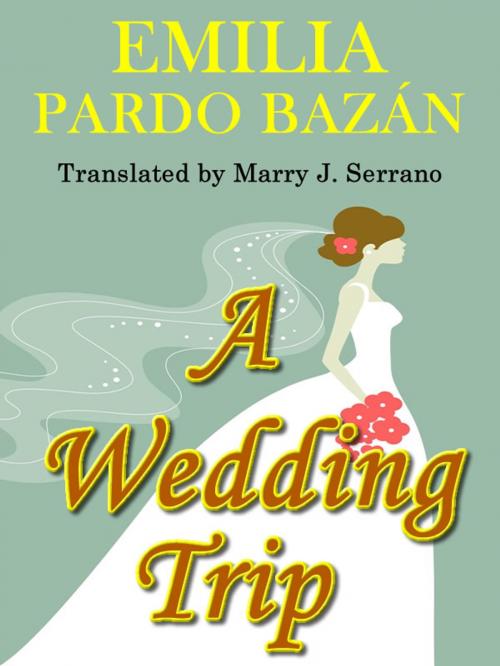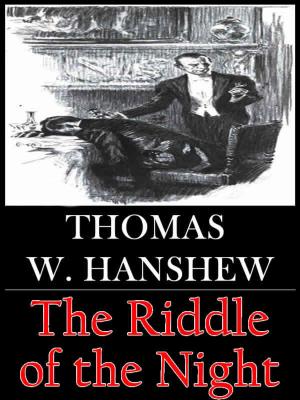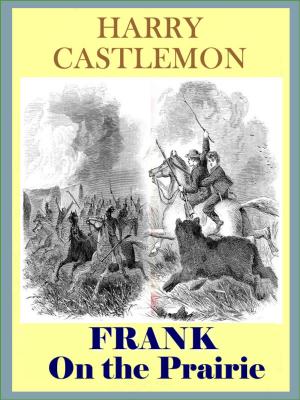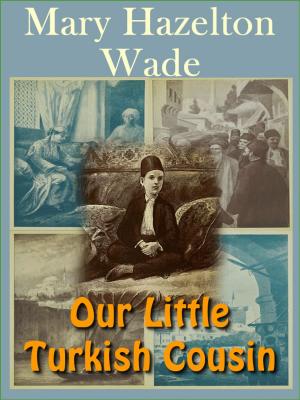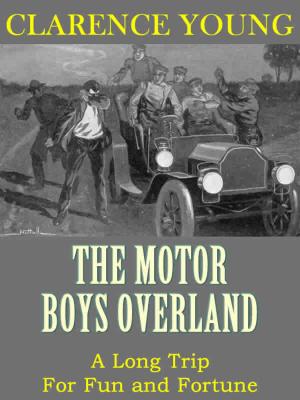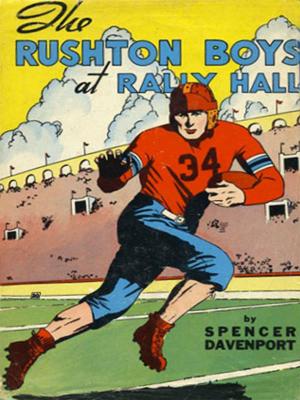| Author: | EMILIA PARDO BAZÁN, Translated by MARY J. SERRANO | ISBN: | 1230001658422 |
| Publisher: | T.M. Digital Publishing | Publication: | April 27, 2017 |
| Imprint: | Language: | English |
| Author: | EMILIA PARDO BAZÁN, Translated by MARY J. SERRANO |
| ISBN: | 1230001658422 |
| Publisher: | T.M. Digital Publishing |
| Publication: | April 27, 2017 |
| Imprint: | |
| Language: | English |
The Leonese was struck dumb with amazement and knew not what to say or do. His dream—Lucía’s entrance, so ardently desired, into the circles of polite society—was about to be realized. But we must be just to Señor Joaquin. He did not fail to perceive clearly, in this supreme moment, certain unfavorable points in the proposed marriage. He saw the difference in the ages of the prospective bride and bridegroom; he knew nothing of Miranda’s pecuniary position, while his daughter’s magnificent dowry was a matter of certainty; in short, he had a vague intuition of the base self-interest on which the demand was founded. The suitor showed himself a skillful strategist, forestalling suspicion, in a manner, and anticipating the thoughts of the Leonese.
“I myself,” he said, “have no fortune. I have my profession—it is true”; (Miranda, like most other Spaniards, had studied law and obtained his degree in early manhood) “and if I should some day lose my position I have energy enough, and more than enough, to work hard and open an office in Madrid, where I could have a fine practice. I desire ease and comfort for my wife, but for her alone; as for my own wants, what I have is sufficient to supply them. The difference in fortune deterred me for a long time from asking Lucía’s hand, but the sentiment with which so much beauty and innocence has inspired me was too powerful to resist; notwithstanding this, however, if Colmenar had not assured me that you were generous-minded and disinterested, I should never have summoned resolution—”
“Señor Colmenar has far too high an opinion of me,” responded the flattered Leonese; “but those things require consideration. Go take a little trip——”
“In a fortnight I will come back for your answer,” responded Miranda, discreetly, taking his hat to go.
He passed the fortnight in a Satanic frame of mind, for it was undoubtedly ridiculous for a man of his pretensions and his rank to have asked in marriage the daughter of a grocer and to be obliged to wait in the ante-chamber of the shop, so to say, until they should deign to open the door to admit him. Meanwhile Señor Joaquin, reading his newspaper and sipping his coffee alone, missed him greatly, and the idea of the marriage began to take root in his mind. Every day he thought the friend of Colmenar more and more desirable for a son-in-law. Notwithstanding this, however, he did what people usually do who desire to follow their inclinations without bearing the responsibility of their actions—he took counsel with some friends in regard to the matter, hoping to shelter himself under their approbation. In this expectation he was disappointed. Father Urtazu, who was the first person that he consulted, exclaimed, with his Navarrese frankness:
The Leonese was struck dumb with amazement and knew not what to say or do. His dream—Lucía’s entrance, so ardently desired, into the circles of polite society—was about to be realized. But we must be just to Señor Joaquin. He did not fail to perceive clearly, in this supreme moment, certain unfavorable points in the proposed marriage. He saw the difference in the ages of the prospective bride and bridegroom; he knew nothing of Miranda’s pecuniary position, while his daughter’s magnificent dowry was a matter of certainty; in short, he had a vague intuition of the base self-interest on which the demand was founded. The suitor showed himself a skillful strategist, forestalling suspicion, in a manner, and anticipating the thoughts of the Leonese.
“I myself,” he said, “have no fortune. I have my profession—it is true”; (Miranda, like most other Spaniards, had studied law and obtained his degree in early manhood) “and if I should some day lose my position I have energy enough, and more than enough, to work hard and open an office in Madrid, where I could have a fine practice. I desire ease and comfort for my wife, but for her alone; as for my own wants, what I have is sufficient to supply them. The difference in fortune deterred me for a long time from asking Lucía’s hand, but the sentiment with which so much beauty and innocence has inspired me was too powerful to resist; notwithstanding this, however, if Colmenar had not assured me that you were generous-minded and disinterested, I should never have summoned resolution—”
“Señor Colmenar has far too high an opinion of me,” responded the flattered Leonese; “but those things require consideration. Go take a little trip——”
“In a fortnight I will come back for your answer,” responded Miranda, discreetly, taking his hat to go.
He passed the fortnight in a Satanic frame of mind, for it was undoubtedly ridiculous for a man of his pretensions and his rank to have asked in marriage the daughter of a grocer and to be obliged to wait in the ante-chamber of the shop, so to say, until they should deign to open the door to admit him. Meanwhile Señor Joaquin, reading his newspaper and sipping his coffee alone, missed him greatly, and the idea of the marriage began to take root in his mind. Every day he thought the friend of Colmenar more and more desirable for a son-in-law. Notwithstanding this, however, he did what people usually do who desire to follow their inclinations without bearing the responsibility of their actions—he took counsel with some friends in regard to the matter, hoping to shelter himself under their approbation. In this expectation he was disappointed. Father Urtazu, who was the first person that he consulted, exclaimed, with his Navarrese frankness:
